
Most breeds of chickens, ducks and geese are quite hardy given the right management conditions so you don’t have to worry about knitting jackets for them! What they do require is solidly built, dry housing with good ventilation. Ideally before the winter began you will have looked critically at your poultry houses and mended any that are leaking and boarded any holes in the sides. Wire netting should be checked for any gaps and loose fittings such as bolts should have been tightened. Poultry housing needs to be dry and draft-free. What it mustn’t be is stuffy. Obviously you don’t want winter gales roaring through the house but it should be designed in such a way that there is ventilation at the top of the house, above where the birds perch. Birds should not be shut into a totally sealed house. Couple that with wet, dirty bedding and you have a recipe for respiratory diseases – wheezing, runny noses and lung problems. If the house is sited in a sheltered position then rain should not blow into the house. If it is sited in the open you may actually have the house blow over as has happened to me. Winter is the time to have poultry reasonably close to the house as you won’t want to walk across a muddy, windy field and they are also safer closer by.
Fox trouble
The long dark evenings coupled with hungry foxes means that poultry housing itself is under attack. There is plenty of time for them to worry away at the poultry house opening or repeatedly attack weak wire on a run. It’s amazing how a determined fox can break into what looks like a really solid house. They can also scratch through rotten wood to get at poultry. So it’s important to take a long hard look at your poultry housing.
Let there be light
この記事は Practical Poultry の November - December 2019 版に掲載されています。
7 日間の Magzter GOLD 無料トライアルを開始して、何千もの厳選されたプレミアム ストーリー、9,000 以上の雑誌や新聞にアクセスしてください。
すでに購読者です ? サインイン
この記事は Practical Poultry の November - December 2019 版に掲載されています。
7 日間の Magzter GOLD 無料トライアルを開始して、何千もの厳選されたプレミアム ストーリー、9,000 以上の雑誌や新聞にアクセスしてください。
すでに購読者です? サインイン
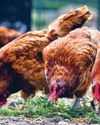
Growing food for Chickens
Mary Larham explores some crops to grow on your holding…
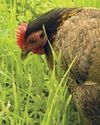
Poultry in the garden – the truth!
Jo-Jane Buxton shares her experiences

The British Waterfowl Association
Which came first, the goose or the egg?

WHY FIT A FAN IN AN INCUBATOR?
Brinsea Products, the Incubation Specialists explain the difference between still air and forced draught
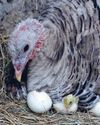
Incubating turkey eggs
Janice Houghton-Wallace looks at broody turkeys and artificial incubation

Chicken nesting box herbs
Diana Clauss owns The Blue Feather Farm, in St Cloud, Florida, home to chickens, ducks, goats, and Anatolian Shepherd dogs.
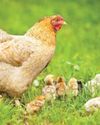
Incubate in January?
Jessica Wombwell says plan the breeding
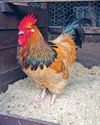
Andy's DIARY
Andy emphases the importance of keeping out damp and wet but allowing ventilation even in cold weather
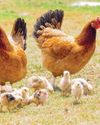
Feeding for Breeding
It may be winter, but as Joanna Palmer, nutritionist for Smallholder Range explains, now’s the time to get your flock in tiptop shape and plan ahead for a successful breeding season next spring.
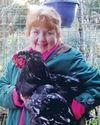
A chick named Cuckoo raised by a duck!
Chris Hammacott and her husband live on a small croft in the Outer Hebrides, they keep a ‘no kill’ flock or rare and rescue sheep which they use to spin and weave rugs. They also share the 8 acres with hens, ducks, cats and 9 rescue pugs.